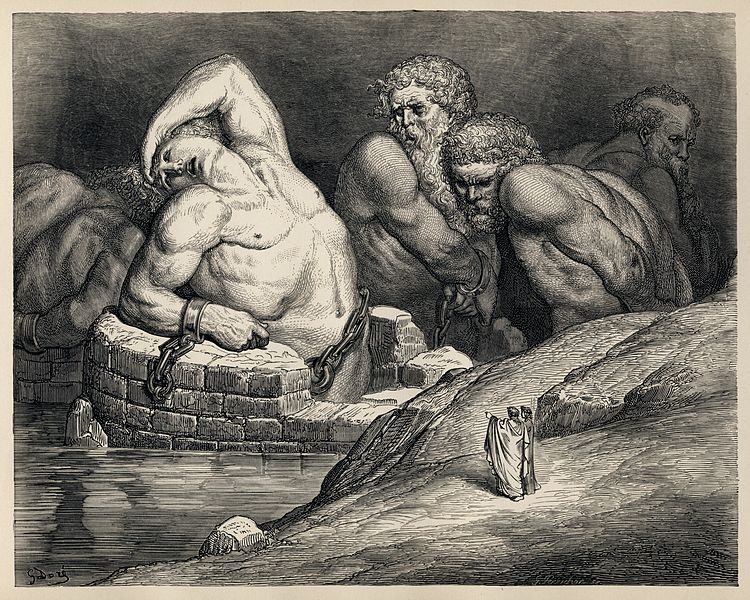
|
This is a non-WLC article. When using resources from outside authors, we only publish the content that is 100% in harmony with the Bible and WLC current biblical beliefs. So such articles can be treated as if coming directly from WLC. We have been greatly blessed by the ministry of many servants of Yahuwah. But we do not advise our members to explore other works by these authors. Such works, we have excluded from publications because they contain errors. Sadly, we have yet to find a ministry that is error-free. If you are shocked by some non-WLC published content [articles/episodes], keep in mind Proverbs 4:18. Our understanding of His truth is evolving, as more light is shed on our pathway. We cherish truth more than life, and seek it wherever it may be found. |

For Christ also hath once suffered for sins, the just for the unjust, that he might bring us to God, being put to death in the flesh, but quickened by the Spirit: By which also he went and preached unto the spirits in prison; Which sometime were disobedient, when once the longsuffering of God waited in the days of Noah, while the ark was a preparing, wherein few, that is, eight souls were saved by water. (1 Peter 3:18-20, KJV)
The following is an excerpt from The Theogony of Hesiod:1
“(ll. 713-735) And amongst the foremost, Cottus and Briareos and Gyes, hungry for war raised fierce fighting: three hundred rocks, one upon another, they launched from their strong hands and overshadowed the Titans with their missiles, and buried them beneath the wide-pathed earth, and bound them in bitter chains when they had conquered them by their strength for all their great spirit, as far beneath the earth to Tartarus. For a brazen anvil falling down from heaven nine nights and days would reach the earth upon the tenth. Round Tartarus runs a fence of bronze, and night spreads in triple line all about it like a neck-circlet, while above grow the roots of the earth and unfruitful sea. There by the counsel of Zeus who drives the clouds the Titan gods are hidden under misty gloom, in a dank place where are the ends of the huge earth. And they may not go out; for Poseidon fixed gates of bronze upon it, and a wall runs all round it on every side. There Gyes and Cottus and great-souled Obriareus live, trusty warders of Zeus who protect Tartarus.”

The above passage, from about 800 B.C., supports the understanding that the spirits in prison and the angels that sinned and were kept in Tartarus, of 1 and 2 Peter, are the sources of mythology—recording the time of the Nephilim in the days of Noah (Gen. 6). Believers need to understand this. Some are still struggling to explain the following:
“If Yahuwah did not spare heavenly messengers who transgressed, but threw them into Tartarus to be kept in chains of gloomy darkness— reserved until the judgment” (2 Peter 2:4).
“Heavenly messengers who failed to remain within their own dominions, but instead abandoned their appropriate dwelling, he [Yahuwah] has held in eternal chains within murky darkness until the sentencing of the great day” (Jude 6). The angels indulged in gross immorality and went after strange flesh (see v. 7).
These passages indeed are mentioned in the account of the Lord Yahushua’ activity after he was made alive, that is resurrected, by Yahuwah. The NIV is less than clear about when Yahushua preached to the spirits who were held in jail. Peter described this as something done after his resurrection. To be “made alive” means to be resurrected. An uninstructed reader might think that Yahushua did the preaching while he was dead!
“For Christ also suffered once for sins, the righteous for the unrighteous, to bring you to Yahuwah. He was put to death in the body [as a human mortal person] but made alive [resurrected] in the spirit. After being made alive, he went and made proclamation to the imprisoned spirits — to those who were disobedient long ago when Yahuwah waited patiently in the days of Noah while the ark was being built. In it only a few people, eight in all, were saved through water” (1 Peter 3:18-20, NIV).
These “spirits in prison” were “once disobedient in the days of Noah.” But Christ did not preach to them at the time of their disobedience.
A word about the use of the word “spirits” for the student: “Spirit” is translated from the same word from which we may translate “breath” or “wind” (pneuma) and does not carry the inherent meaning, “disembodied.”
“Spirits” are not human beings. They are in the category of created angels. So the angels (heavenly messengers) are called in many translations “ministering spirits” (pneuma) in Hebrews 1:14: “Are they [the angels] not all ministering spirits, sent out to render service for the sake of those who will inherit salvation?”
When attention is paid to the fact that angels are called “spirits” by inspired writers, and that some of these spirits (angels) transgressed in the days of Noah, and were held in chains in dungeons of gloomy darkness, while awaiting that great day of sentencing, it is easier to understand the following: That finally Yahushua, after being resurrected to the life of immortality, went and proclaimed his glorious victory over sin and death to these wicked beings held for judgment.
We can comprehend that much of ancient mythology was derived from the actual events of this great rebellion and the resultant incarceration of some very powerful beings! This truth should warn righteous persons to remain faithful to truth, since we have been informed, through inspired writings, preserved also by ancient historians. We must move onward living godly lives and proclaim these important truths. Mythology is sometimes an embroidered account of real history. In this case, it aptly describes a rebellion of old, and the circumstances of Tartarus, corresponding to wicked angels in 2 Peter 2:4 and Jude 6. But we must guard against corruption by Greek mythology, and a resultant blurring of the true identities of the beings involved, and the polytheistic state to which they degraded theology.
1 Translated by Hugh G. Evelyn-White (1914) http://www.sacred-texts.com/cla/hesiod/theogony.htm